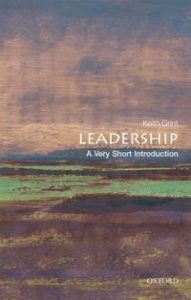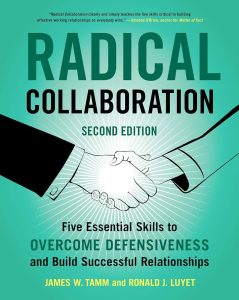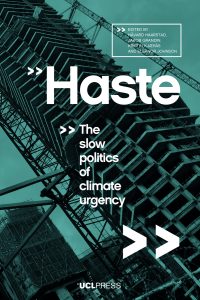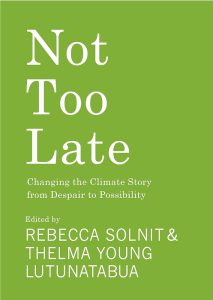Updated 2024-09-09 at 09:59 DM
Online material, reading, assignment and mandatory seminar
Your time planning for week 2
The course runs full time 100% 40 hours per week during 20 weeks during the autumn semester. You are responsible for your own time planning, study time, and that time will be different for different people with different study techniques, experience and pre-knowledge of issues in the course. A rough estimate of the 40 hours you have allocated for the course during week 2 are:
- Online material, videos, audio, texts, activities: 12 hours
- Course books and your own reading: 16 hours
- Seminar assignment: 8 hours
- Mandatory seminar: 2 hours
- Summarizing the week Friday after seminar: 2 hours
Course books and reading week 2
During week 2 you read the following books:
 Chapter 4-8 (the rest of the book). Grint, K. (2010). Leadership: a very short introduction. Oxford: Oxford University Press.
Chapter 4-8 (the rest of the book). Grint, K. (2010). Leadership: a very short introduction. Oxford: Oxford University Press.
 Chapter 4-6. Tamm J. W. (2020). Radical Collaboration: Five Essential Skills to Overcome Defensiveness and Build Successful Relationships (2nd ed.). London, UK: HarperCollins Publishers.
Chapter 4-6. Tamm J. W. (2020). Radical Collaboration: Five Essential Skills to Overcome Defensiveness and Build Successful Relationships (2nd ed.). London, UK: HarperCollins Publishers.
 Chapter 1-5. Haarstad, H., Grandin, J., Kjærås, K. & Johnson, E. (eds.) (2023). Haste: the slow politics of climate urgency. London, UK: UCL Press. Free access here: https://discovery.ucl.ac.uk/id/eprint/10162046/1/Haste.pdf
Chapter 1-5. Haarstad, H., Grandin, J., Kjærås, K. & Johnson, E. (eds.) (2023). Haste: the slow politics of climate urgency. London, UK: UCL Press. Free access here: https://discovery.ucl.ac.uk/id/eprint/10162046/1/Haste.pdf
 Pages 3-44. Solnit, R. & Lutunatabua, T.Y. (eds.) (2023). Not too late: changing the climate story from despair to possibility. Chicago, Illinois: Haymarket Books.
Pages 3-44. Solnit, R. & Lutunatabua, T.Y. (eds.) (2023). Not too late: changing the climate story from despair to possibility. Chicago, Illinois: Haymarket Books.
Course goals examined week 2
The course goals that are examined during week 2 are:
On completion of the course, the student should be able to:
- account for and problematise current issues, research and scientific debates within the climate change leadership field;
- summarise and critically relate to different perspectives, central theories and concepts regarding climate change and leadership;
Syllabus for Climate Change Leadership in Practice.
Written preparation assignment week 2
Your assignment in preparation for this Friday’s mandatory Sustainability, Climate and Leadership Mythbusters seminar is to formulate two questions from the two course goals for the week, and then answer those questions.
- From the course goals “On completion of the course, the student should be able to: account for and problematise current issues, research and scientific debates within the climate change leadership field” and “On completion of the course, the student should be able to: summarise and critically relate to different perspectives, central theories and concepts regarding climate change and leadership” formulate one questions per course goal. The questions should not overlap too much when it comes to themes, issues addressed. And be creative!
- Answer the two questions using your own argumentation and with support of relevant references to this week’s material and reading. Max 600 words per question.
- Submit the assignment with questions and answers no later than September 13 at 12.00 here: https://uppsala.instructure.com/courses/94667/assignments/279971
That’s it, good luck!
Mandatory seminar week 2 – Friday September 13 at 13.15-15.00
Join Zoom-meeting here: https://uu-se.zoom.us/j/66235378067
This Friday’s mandatory Sustainability, Climate and Leadership Mythbusters seminar is built on the TV-series Myhtbusters. Here’s a long lists of supposed myths and whether they are busted, confirmed or plausible: https://mythresults.com/ and watch the show below or just search online.
- Individually with inspiration from the first two weeks of the course and your written assignments pick a commonly held belief/statement (myth) you found extra interesting to investigate during the seminar, and then summarize it as a short statement.
- You all vote on top myths to investigate and then you are divided into smaller groups.
- In your groups go to work and critically test the myth – look at the facts, evidence, arguments, context and write down a summary with relevant references that supports the myth being busted, confirmed or plausible.
- We gather back in the big group and you present your findings.
- Reflections, questions and week 3.
Tech and communication
To be able to study the course you will need a computer, tablet or smartphone with access to the internet. Seminars, workshop and online meetings will be easier if you have external headphones with a microphone. It’s important that you download Zoom here: https://www.uu.se/en/students/it-for-students/software/zoom and install it on the device you’re using for the course. You can test video and audio in the settings.
You can ask general questions at the end of mandatory sessions online, and course coordinator Daniel Mossberg is available every week day Monday to Friday via text/sms 073-065 02 28, call if there’s anything urgent. Emails will be responded to within one week at daniel.mossberg[a]cemus.uu.se.
Online material – video, audio, texts and activities
Climate and leadership
Climate policy and geopolitics
Energy systems and renewables
Climate and economic systems
Climate activism and civil society
